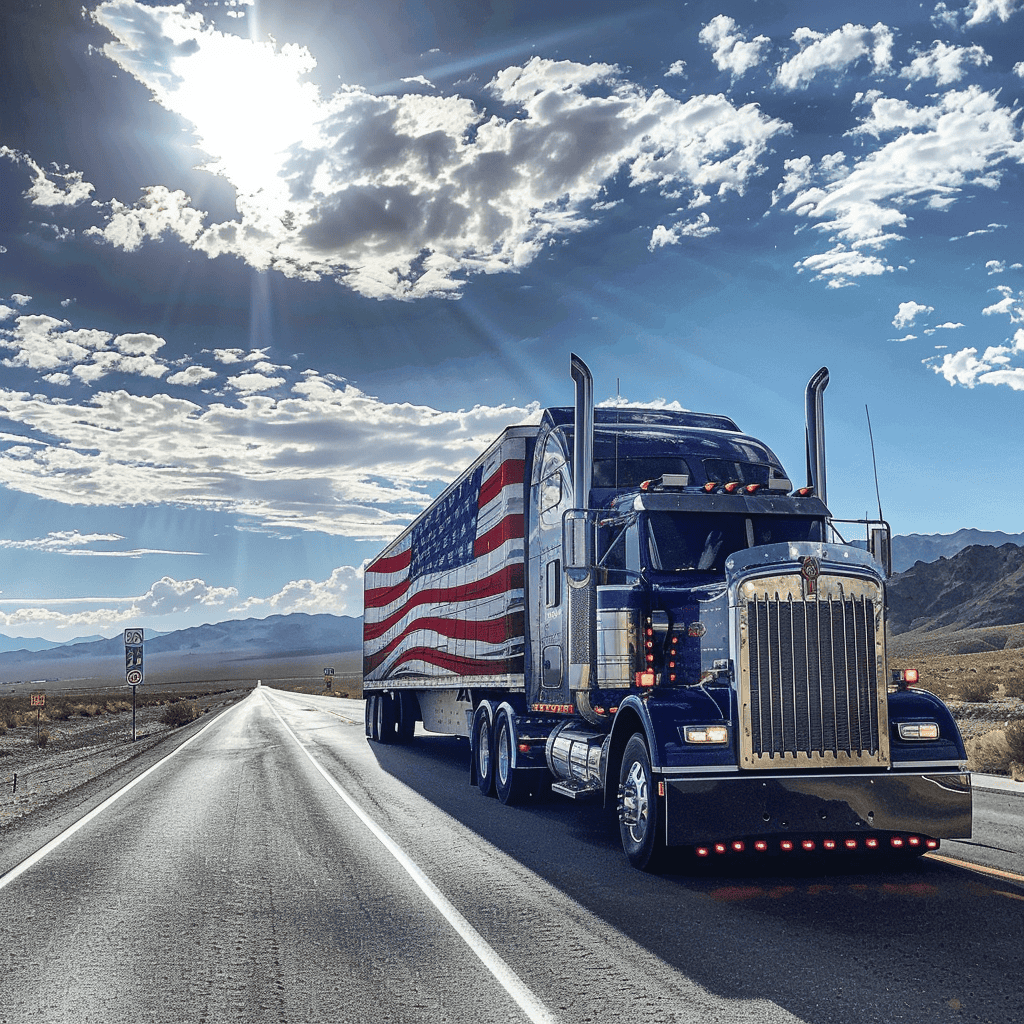Maryland Oversize Permits
Freedom Heavy Haul can offer expedited Pickup and Delivery for any size shipment anywhere in the USA. Contact us today for No Hassle, No Pressure Pricing.
Maryland’s roads accommodate a vast array of transport needs, and among these are the oversize loads that traverse the state’s highways. Understanding what qualifies as an oversize load and the importance of acquiring the right permits is crucial for compliance and safety. Oversize loads typically include large equipment, construction materials, and pre-built homes, which exceed standard legal dimensions.
What Constitutes an Maryland Oversize Permits
In Maryland, any vehicle or load that exceeds dimensions of 8’6″ in width, 13’6″ in height, or 55′ in length is considered oversize and requires special handling and permits. These dimensions include all parts of the load, and any extension beyond these limits must be meticulously planned and permitted.

The Importance of Securing the Proper Permits
Securing the appropriate permits is vital to ensure the safety of both the transport and the general public. Permits serve as a legal agreement between the transporter and the state, stipulating adherence to specific routes, times, and additional safety measures to mitigate potential disruptions and hazards.
Permit Application Process
The process of applying for an oversize permit in Maryland is streamlined through an online system, helping transport companies and individuals to efficiently secure the necessary documentation.
Navigating the Online Application System
Maryland’s online permit system, Maryland One, offers a user-friendly interface where applicants can submit their permit requests. The system requires detailed information about the load, the vehicle, proposed travel dates, and the route.
Essential Documents for Permit Application
Applicants must provide vehicle registration, proof of insurance, and details about the load, including weight, dimensions, and nature of the load. Detailed route proposals must also be submitted for approval, ensuring that the chosen paths can accommodate the oversize load without disrupting traffic or damaging infrastructure.
Renewing and Managing Existing Permits
Maryland One also facilitates the management and renewal of permits. Users can track the status of their applications, amend details if necessary, and plan for renewals well ahead of their permit expirations, promoting continuous compliance.
Permit Details and Requirements
Understanding the specifics of permit requirements is essential for compliance. Maryland’s Department of Transportation stipulates clear guidelines on dimensions, weights, and other critical factors affecting permit issuance.

Specific Dimensions that Require Permits
Any vehicle or load that exceeds standard dimensions must have a permit. This includes a width greater than 8’6″, a height more than 13’6″, and a length exceeding 55′.
Validity Periods for Different Permit Types
Oversize permits in Maryland are typically valid for five to ten days, depending on the specific requirements of the transport. Extensions can be granted under certain conditions, such as unforeseen delays or adverse weather.
Fee Structure for Oversize Permits
The cost of oversize permits varies based on the size of the load, the complexity of the route, and the duration of the permit. Fees are structured to cover the administrative costs of permit processing and the potential wear and tear on infrastructure.
Operating Hours and Restrictions
Permit holders must adhere to specific operating hours, which are designed to minimize impact on regular traffic and enhance safety for all road users.
Designated Operating Times for Oversize Loads
Typically, travel is restricted to daylight hours from 30 minutes before sunrise to 30 minutes after sunset. Weekend travel may be restricted or entirely prohibited depending on the size and nature of the load.
Exceptions for Night and Weekend Travel
Special permits may allow for night or weekend travel, particularly if the load is less disruptive during these times or if urgent transport is necessary.
Specific Restrictions on Routes and Areas
Certain routes may be off-limits for oversize loads due to their infrastructure, traffic density, or environmental sensitivity. Detailed maps and guidelines are provided with each permit to guide transporters.
Safety Measures and Compliance
Maryland enforces strict safety protocols to protect both the transport operators and the general public during the movement of oversize loads.

Escort and Pilot Car Requirements
For particularly large or complex loads, escort vehicles or pilot cars may be required. These serve to warn other road users and help manage the movement across different terrains and through urban areas.
Mandatory Safety Signage and Equipment
Signs indicating “Oversize Load” are mandatory on all vehicles carrying large loads. Additional safety equipment, such as flags, lights, and reflective markers, must be used to increase visibility.
Legal Consequences of Permit Violations
Violations of permit regulations can lead to hefty fines, legal actions, and restrictions on future permit approvals. Ensuring that all permit conditions are met and maintained throughout the transport process is vital to avoid these penalties.
Advanced Planning for Oversize Transports
Careful planning and route selection are imperative for the successful transportation of oversize loads, taking into account the unique challenges posed by larger dimensions.
Strategic Route Planning Based on Load Size
Route planning involves detailed analysis to avoid low bridges, narrow roads, and areas with heavy traffic. Using the provided guidelines and maps from Maryland’s Department of Transportation ensures that the chosen route is suitable for the oversize load.
Adapting Routes for Safety and Compliance
Adjustments to routes may be necessary as conditions change or as additional information about roadworks or other potential obstructions becomes available. Being flexible and responsive to these changes is crucial for safe transport.
Regulatory and Legal Considerations
Oversize transport is governed by a mix of state and federal laws, making it important to understand the regulatory environment in which these transports operate.
State vs. Federal Regulations on Oversize Transports
While Maryland sets specific requirements and restrictions for oversize loads, federal regulations also apply, particularly when crossing state lines. Compliance with both sets of regulations is necessary to avoid legal complications.
The Role of Law Enforcement in Monitoring Compliance
Law enforcement agencies play a critical role in monitoring oversize load movements. Their involvement helps to ensure that transporters adhere to the stipulated routes, times, and safety measures, maintaining road safety for all users.
Support and Resources
Maryland provides a range of support services and resources to assist transporters in complying with permit requirements and in planning safe transport operations.
Accessing Support from MDOT’s Permit Office
The Maryland Department of Transportation’s Permit Office is a vital resource for transporters. They offer guidance, answer queries, and provide updates on regulatory changes that could affect oversize load transport.
Utilizing Online Tools and Resources for Applicants
Online resources, including FAQs, application guides, and route planning tools, are available to help applicants navigate the permit process and ensure compliance with all regulations.
Addressing Common Concerns
Understanding common issues and how to address them can greatly ease the process of applying for and using oversize permits.
Answers to Frequently Asked Questions
The MDOT website and its Permit Office provide answers to frequently asked questions, which can be a great help in clarifying procedures and requirements for new and experienced transporters alike.







